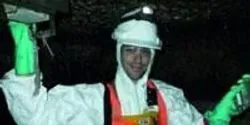Environmental

Less than a year after patenting a process that could improve stripping greenhouse gasses from industrial emissions, a University of Alabama engineering professor was recently granted another patent that uses a different solvent to accomplish the same goal.

A team of researchers from the National University of Singapore’s (NUS) Faculty of Engineering has developed a cost-effective solution for the control of indoor air pollution, especially from the haze. The development of this system is timely in light of the World Health Organization’s (WHO) recent news on the risks of inhalation of particulate matter measuring less than 2.5 microns (PM2.5), which has been linked to a range of cardiovascular and respiratory ailments, including cancer. The new system is easy to use and ideal for use in a range of indoor environments.

An assistant professor of chemical & biomolecular engineering at Clarkson University is pioneering a new purification process that, if successful, could help millions of people without access to clean water quickly and efficiently purify water to make it safe for drinking and cooking.

Technology capable of sampling water systems to find indicators of fecal matter contamination that are thousandths and even millionths of times smaller than those found by conventional methods is being developed by a team of researchers at Texas A&M University.

A group of McMaster University researchers has solved the problem of cumbersome, expensive and painfully slow water-testing by turning the process upside-down.

A University of Queensland-led research project that is fundamentally changing sewer corrosion and odour management in Australia has won the prestigious 2014 International Water Association Asia Pacific Regional Project Innovation Award for Applied Research.













